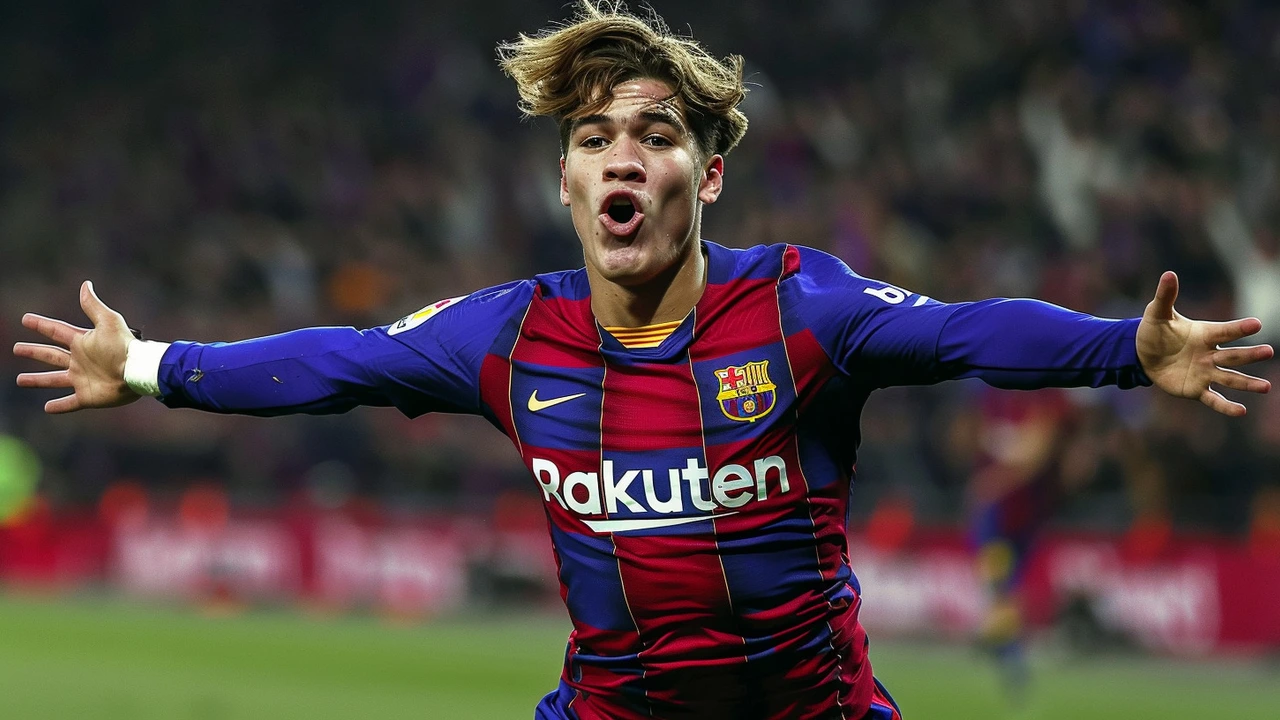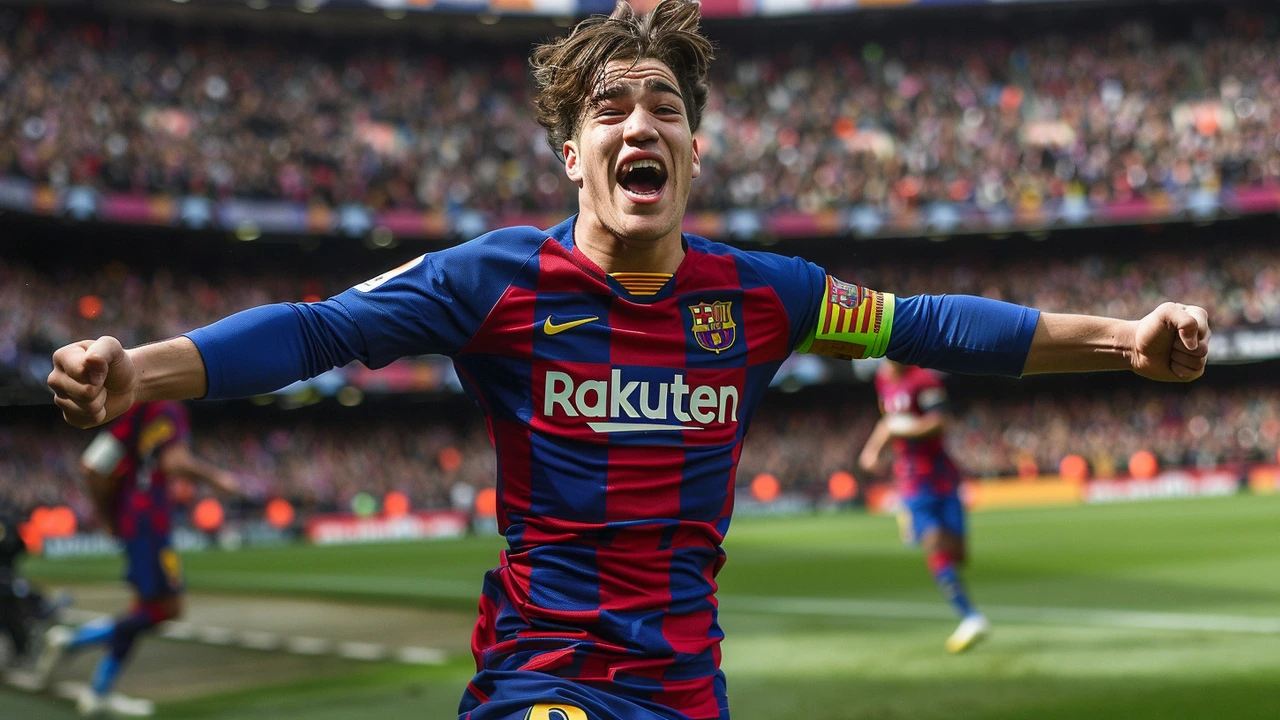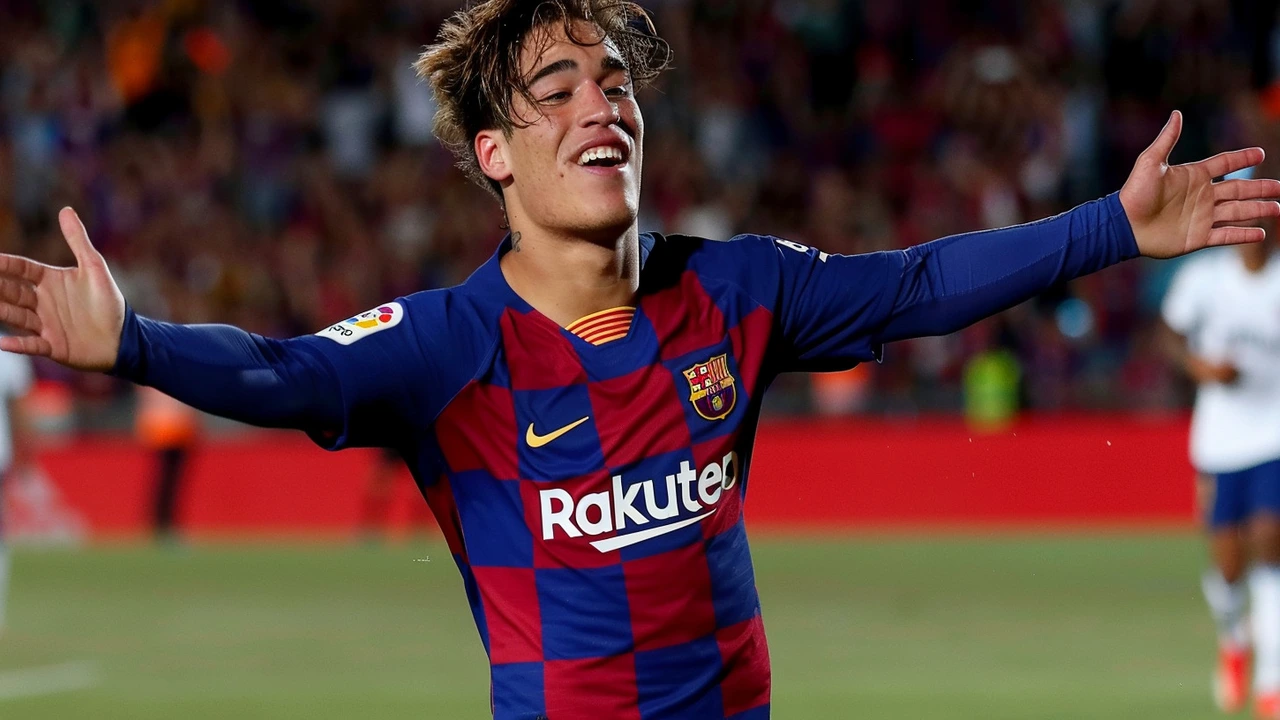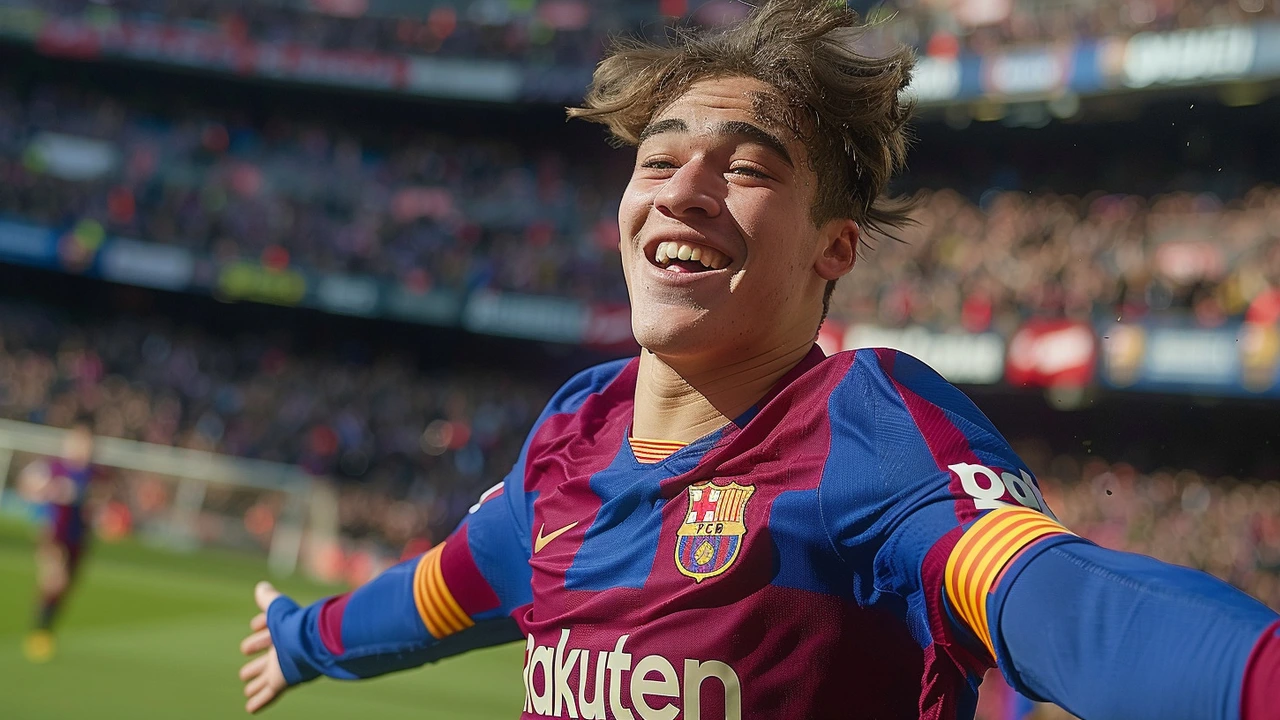Introduction
In a decisive moment for youth football, 16-year-old Marc Guiu made the surprising switch from Barcelona's famed La Masia academy to England's Chelsea. As one of Spain's brightest young talents, Guiu has sparked a conversation on the evolving nature of player development and inter-club negotiations. How did Chelsea convince such an asset to snub Barcelona and head to the Premier League? The story involves strategic planning, persuasive pitches, and key relationships within the football industry.
The Appeal of Chelsea’s Youth Development
Marc Guiu, known for his exceptional skills on the pitch, had been with Barcelona's La Masia, often considered a cradle for football prodigies. It would seem that staying there would be the natural progression for any aspiring footballer. However, Chelsea’s commitment to youth development played a significant role in tipping the scales. The Blues have a history of promoting young talent, providing a robust platform for budding players to shine.
Under the guidance of coaches who prioritize nurturing young talent, Chelsea has built a reputation as a club where the youth are given genuine opportunities. The club’s track record in integrating young players into the first team resonated with Guiu. The promise was clear: an accelerated path to high-level football.

The Persuasion Strategy
But it wasn't just Chelsea’s youth policy that attracted Guiu. The club presented a well-rounded vision for his future, tailored to his personal and professional growth. This vision included an individualized development plan, opportunities to train and play with the first team and a clear pathway to becoming a pivotal figure in the Premier League.
Chelsea emphasized not only the technical and tactical aspects but also the holistic development of the player. The club’s education program, focused on balancing academic pursuits with rigorous football training, was another compelling factor. These elements together painted a picture of a nurturing environment where Guiu could thrive both on and off the pitch.
The Role of Pere Guardiola
Pere Guardiola, Marc Guiu's agent and the brother of Manchester City manager Pep Guardiola, played a crucial role in this transfer. His close relationship with Chelsea's director of football, Marina Granovskaia, was instrumental in facilitating the deal. Guardiola’s extensive knowledge of the football landscape and negotiations expertise ensured that Chelsea's offer was not only attractive but also meticulously crafted to suit Guiu's aspirations.
Marina Granovskaia’s involvement underscored Chelsea’s intent and commitment. Known for her sharp negotiation skills and strategic thinking, she exemplified Chelsea’s dedication to securing top young talent. The trusted relationship between Pere Guardiola and Granovskaia streamlined the negotiation process, making it smooth and efficient.

The Impact on Barcelona
Guiu’s decision to leave La Masia for Chelsea represents a significant loss for Barcelona. The Catalan club has long been proud of its ability to develop young talent through its academy. Losing a high-potential player like Guiu is a reminder of the competitive nature of football transfers and the ongoing battle for emerging stars.
Barcelona had high hopes for Guiu, expecting him to follow in the footsteps of previous La Masia graduates who have made it to the first team. The blow is considerable, as it disrupts the club’s internal progression plans and raises questions about their ability to retain future talents in an increasingly competitive market.
What’s Next for Marc Guiu?
For Marc Guiu, the move to Chelsea is a step into the limelight of one of the world’s most prestigious football leagues. The Premier League’s visibility and competitive nature will provide him with the platform to showcase and further hone his skills against some of the best players in the world. The young midfielder’s integration into Chelsea’s system will be watched closely by fans, pundits, and aspirants alike.
As he embarks on this new chapter, Guiu symbolizes a broader trend of young talents exploring opportunities beyond their home countries’ traditional powerhouses. His progress at Chelsea will be an interesting story to follow and could potentially serve as a case study for future generations considering similar moves.

Conclusion
Marc Guiu’s decision to join Chelsea, leaving behind Barcelona, signifies more than just a club transfer; it highlights the shifting dynamics in youth football. Chelsea’s persuasive strategy, emphasis on youth development, and strategic negotiation have set a new benchmark. Barcelona’s loss is undeniably Chelsea’s gain, with the Premier League club poised to nurture another promising talent in their ranks.
As the football world keenly observes Guiu’s journey, one thing remains clear: Chelsea’s strategic acumen and proactive approach in youth recruitment could well be shaping the future of football transfers and development. The implications for youth talent in football are profound, as more young players like Guiu look beyond traditional pathways to realize their dreams on a global stage.
The curtain rises on a new era where calculated risk, strategic vision, and robust support systems guide young talents to unprecedented heights. Marc Guiu stands at the cusp of this new wave, ready to etch his mark in the annals of football history.
